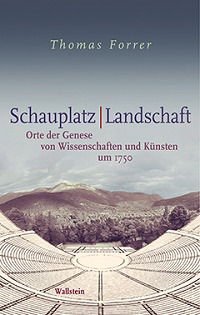The (natural) spectacle as space in the age of enlightenment. The beginning of human potency
DOI:
https://doi.org/10.22029/ko.2014.859Abstract
What does landscape mean in the middle of the 18th century? Following this question Thomas Forrer analyses discursive moments and figures in early modern texts from natural history, art theory, and philosophy. In the Baroque period nature would show the impermanence of all mundane life, and in the modern age the alienation of nature would be the current topic. To Forrer, nature appears differently in the era of enlightenment from 1720 to 1770. The experience of nature would be perceived as the origin of human potency. Landscape as spectacle would be then the projection surface for every thinkable meaning, the 'putting-before-one's-eyes' supplies the possibility of thinking further and becoming potent in the first place. In respect thereof, Forrer observes his sources with a focus on 'natural history', 'art and aesthetics', and 'poetry'.

Downloads
Published
Issue
Section
License
All articles (not book covers) in KULT_online from issue 50 on are published under the license Creative Commons Attribution 4.0. All published articles may be reused under the conditions of the license, particularly for commercial purposes and through editing the article (Human-Readable Summary). All authors (have) permitted the publication under the above mentioned license. There is no copyright transfer towards KULT_online. For all book covers specific rights might be reserved, please contact the respective publisher for any lawful reuse. All contributions published in issue 1-49 of KULT_online are free available online and protected by the German Copyright Law.



